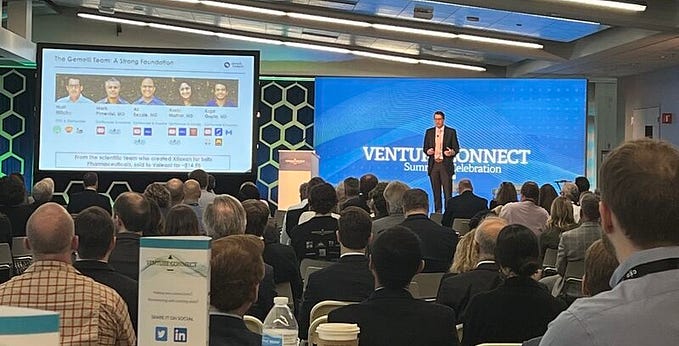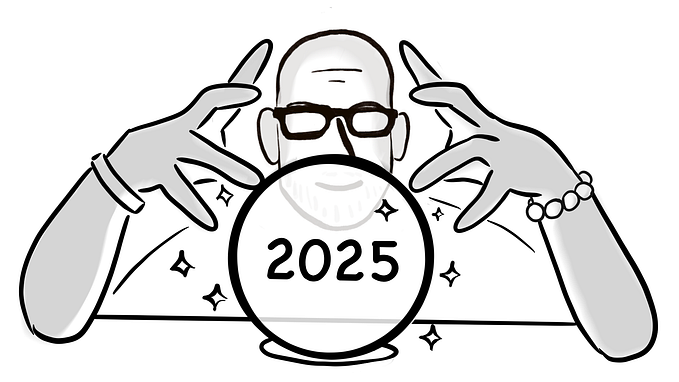$100K Salary Goes How Far?

I don’t have a salary, but as someone who used to, I find this interesting. The Triangle Biz Journal calculates that ~$32K on average is ‘left over’ if you’re one of the 142K+ households in Raleigh metro area making $100K+.
I wonder how many of these households with fathers and mothers in Raleigh know they have opportunity to invest part of the ‘left over’ in their ‘local stock market’ of local entrepreneurs building companies their children would find fascinating and use that as a way of connecting better with their children’s proclivities vs. just investing in their IRAs and 401(k) for ‘retirement.’

…and this local type of investing is not just available to the 6 figure household. It’s available to all 18 years or older, estimated to be nearly 1M people living in the Raleigh metro area and all 254M+ people in the US (Previous source for metro * population of those 18 years or older).
Where Does One Find Access to Invest in Companies Connected to Raleigh Building the Next Big Thing?
As part of Innovate Raleigh Summit, our team alongside the founders of 6 local companies connected to Raleigh building the next big thing, spun up the site http://investinraleigh.us (#InvestInRaleigh) as awareness and access for people to help newer companies grow as well as for them to have an easy way to find local investment opportunities offered by companies impacting Raleigh.

Hanging out with some of the speakers and organizers of Innovate Raleigh Summit 2021 before the event
http://investinraleigh.us doesn’t host the investment offerings. Links either direct to a:
- Page on the individual company’s site where people can learn more about the companies and then choose if they want to indicate they would be interested investing, or
- Regulated funding platform where people can learn more about the offering and choose if they want to invest directly in the company.
*More context on these 2 paths at the very end below the article.
It’s important that to know investing in startup, early, and small companies is risky and they should never invest more than they are willing to lose. It’s also important to note that this article is for information purposes only and should not be interpreted a solicitation to invest in any of these companies.
However, I’m also vocal about how much of an educational asset these founders’ companies have been for my wife and I to our children, especially our almost 9 year old who has a mind for ‘engineering’ among other areas.
Investing in Entrepreneurs in Raleigh Building Cool Stuff is an Education Asset both for Parents and Our Children …Sometimes it also Generates a Return
For example, one of the last Raleigh-based companies we invested some smaller dollars in was https://republic.co/gobe run by a father and wife founding team. GoBe makes a snack spinner which my son will most certainly deconstruct and it was him as we were perusing some of the offerings on NC Grind who said, dad, it’s only $100…let’s invest. So I started to question him a bit on it and asked, how might that team make a return on his $1 alongside mommy and daddy’s money (gotta make it relatable for the kiddo). His response and reaction was quite cool when he realized he might turn $1 to $5, $10, or even more. He didn’t care if he lost the $1. It was more about putting money into something he could relate to. It was quite a cool.

The GoBe Snack Spinner. Get them at Costco
It was even cooler when I was able to let him know a couple of months ago, GoBe landed a 200K GoBe Snack Spinners order at Sam’s club which was 185% growth over all of the company’s historical revenue combined. Know how they did it?
- They ran an crowd investment campaign aka one open for anyone to invest real $ for real potential upside $.
- They asked their investors if they had a connection into big retail.
- One of their crowd investors, an engineer at Wal-mart, made the connection.
- Financing for the Snack Spinners came through another connection in their community of equity investors and fans.
Definitely not rocket science, but also very intentional and on point for what founders should do to leverage their network and create opportunities for mutually beneficial outcomes. It’s also interesting because 1 connection for a company of this size can have tremendous potential to help the company increase in value. However, I’d venture it’s rare such connection for Apple would move the bar on the share price.
From my perspective, equally as important, as a parent, it equips me with real life situations he’s interested in (like building ‘stuff’), in order to train him on how all his buddies can build and fund things together they are interested in. I mean after all, isn’t that why we send our children to schools and higher learning?
Shark Tank for All
Many people of all ages love Shark Tank. I remember speaking to a class of middle schoolers trying to explain all of what I do to help companies grow and all I could think of that may be relatable to them was Shark Tank. So I asked. How many of you watch Shark Tank. All 20+ of them raised their hands. “Phew, got lucky on that one,” I thought. So I said, “Did you know, now you can be the shark.”
…Gasps from all 20. “I love shark tank.” “Whoa, cool.” etc. I’m sure you can imagine the energy in the room at that point.
“I train founders how to build their companies and part of their training is how they can open opportunity for anyone [at least 18] to be the sharks in their companies,” I explained.
Our Children Are Creators!
Our children love the thought of creating and being part of it. For them, I find it is more about being a creator of something cool that they love 1st, than the cultural influence of becoming a millionaire (or billionaire). As a father with a 5 and almost 9 year old, like many of you with kids, I see the things they love to create and try to think of ways to expose them to related ideas that may help them create something new.
But Where Does One Start to Learn More?
http://investinraleigh.us is one. Check out https://ncgrind.com for education and links to live company offerings connected to NC. Here’s a condensed crazy history lesson…
…For 80 years, since the 1930’s it was largely illegal for most people in America to invest in private companies. Until 2016, My wife and I had no education on this world called the “private markets” where every company not on the stock market ‘sits.’ Most companies are private and until 2015, access was largely just for the wealthy.
What are private companies?
- Your favorite local coffee shop, brewery, distillery, restaurant, the building they sit in, early stage / startup tech companies, etc.. are private companies.
- 60% of Amazon’s revenue comes from a multitude of ‘3rd party Amazon sellers’ who are mostly all private companies
Meaning unless you have $1M in assets (not including your primary home) or make $200K/yr (single), $300K/yr (married) you can’t invest in them. That was at least until rules changed in 2015, 2016, and most recently 2021 allowing private companies to raise up to $5M/yr from hundreds or thousands of people at a time while setting the minimum investment check size as low as they want…often $100 to $1K.
Let’s Put Things in Perspective — Private vs. Public and Access
To give some perspective of private vs. the stock market (NASDAQ, NYSE, etc.), let’s take one of the greatest private market investing stories of all time. Uber IPO’d (aka became listed on the stock market making it accessible for public investing, IRAs & 401(k)’s for the major of Americans) at a stellar high ~$75 Billion valuation trading at $45/share. As of this article’s date, it’s now at an $82B valuation and share price is around the same (for the majority # of people who have access now).
So who shared in the wealth generation on the way up? Uber was once at a $4 Million valuation, turning every $1,000 invested to an estimated $1,400,000. Before IPO, Uber was a private company owned mainly by a bunch of wealthy investors. This is a major reason why the wealth gap is so large. Apple… Amazon… Google, etc. have similar stories of wealthy investors becoming wealthier. This isn’t a rich vs. poor proposition. It’s just how the laws were written to ‘protect investors’ for 80+ years. Crazy huh?
However, now anyone can be an investor in early private companies.

Our dog Carolina who wears a red collar because I went to NC State and my wife’s dad went to Carolina.
Remember how I talked about risk earlier? Here’s some context. My wife and I have a 13 year old lab named Carolina. Our 1st investment was a traveling pet veterinary concept named VetPronto. The founders ‘sold’ (‘exited’) the company, but at a loss so we lost our entire investment. That was a wake up call for me to learn why they failed and we got smarter about it.
Our last 2 exits were for a new concept doctor’s office who ‘exited’ to a company on the stock market and Mevo who sold to Logitech.
How’d we do that?
Luck? Kind of. One ‘trick’ is we learned is that ‘seasoned’ sharks (aka “Angel investors”) like Mark Cuban diversify investments over time across a minimum of 20 if not 50+ high growth companies who might have the potential to shoot up:
- from early revenue $100K/yr or less (or 100, 1K users, like app users)
- to several $Million or even $Billion in revenue (or Millions of users)
So we changed our strategy, investing the same amount we did in VetPronto, but equally over 5 founders’ companies we believed in over a 3 to 6 month period and now 3 years later, are invested in 80+ companies and help the founders when they have asks of us. Revenue data, user grow, information about the founders’ history, and other information is publicly accessible on these Reg CF and Reg A+ offering pages so we also pay more attention to what a founder is saying about how they will grow and bounce that rationale off other people to see what holes they can poke.
See we can’t make a huge difference in the upside of an Apple, but we have become better at learning how we (along with hundreds if not thousands) can for a local or smaller company especially when it’s an intro (like the investor did for GoBe). This is the new world of “CrowdBased” companies.
What about Super Local Companies such as Coffee Shops, Breweries, Local Growing Franchises that Offer Revenue Shares and Commercial Real Estate?
We’ve also learned that companies who share in their revenue like those found on sites like MainVest** (coffee shops, franchises, etc.) or investments in house flips (like those on GroundFloor) or commercial real estate (such as multi-family, student housing, spaces for franchises or multiple businesses) typically pay us quarterly or yearly and in general seem to have worked out well for us…even during COVID. These founders used their large crowd investor base to sustain or propel revenue growth.
We use the returns (when there are returns) to reinvest in other main street businesses and for investments in high growth companies that in our opinion are higher risk. Plus even if one of the higher growth companies takes off, typically there’s no return for 7 to 10 years so for us, the revenue shares and commercial real estate have been a nice way to create a cushion of re-investment capital without pulling new funds in.
Historical performance can never determine future results, but I have learned now there is a reason why wealthy people put their money in revenue shares and commercial real estate.
A New Way of Investing for Possible Early ‘Retirement’
In fact, this may sound crazy, but the majority of our investments are now in local companies. Not only do they provide the backbone of the economy and area we love via hiring and innovation, but we also find investing in them, more relational (aka I’m not looking at a daily share price. I’m looking at value generation over time)…
…and 80+ years of data shows, it has the highest potential for return overall when we look at it portfolio wise.
- Traditional Angel/VC Funds have historically generated 26% YoY returns on average (higher than the stock market’s 10% return). Under new public investment laws, now my wife and I have opportunity create our own potential high growth family fund comprised of high growth companies of founders we love and can help make valuable connections, while also exposing our children to certain founders who are building things which match their interests.
- We invest in Main Street. Average returns on revenue share offerings on a site like MainVest are targeted at 10% to 25%/yr. Connections help increase opportunity for higher returns, like Ivyees Everything Honey which generated a 38% IRR (Internal Rate of Return) for a community of investors. These are the very places our friends and family may eat and drink.
- We invest in local commercial real estate. Every wonder where cost of living increases come from? It’s not just residential housing. A leading indicator is often commercial real estate which historically there have been opportunities to generate 6% to 8% cash per year with overall returns of 15% to 25% IRR (aka the investment period may be 3 to 5 years. After being sold to another investor, the rest of the cash associated with the annual IRR target above the yearly cash per year is realized). These are the buildings housing new families that we all say “Welcome Y’all” to or buildings the businesses we eat, drink, and shop from are housed.
Remember for many of these companies, we have connections that can help them grow or at a basic level, if it’s a food/beverage entrepreneur, yes, you’ll find us eating or drinking there with buddies mainly because we enjoy what they make. It’s more holistic knowing we’re helping the company and our portfolio grow in value too. You can see some of our portfolio on my LinkedIn profile under ‘Tionchar’ in my ‘Experience’ section.
Note: This is risky, even more so to those who are new. If you’re not willing to lose what you invest in a company, don’t invest because most likely at least 1 company, if not more than 1 you invest in will fail.
Over the past 4 years, my wife and I have learned how to invest this way and FOR US, we view this as less risky TO US than the ‘whims’ of the stock market where people are just trading with other people vs. in private companies and local investing where a crowd of investors is trying to create long term value for a company with the founders & teams of those companies.
So What Will the Future Hold for Raleigh and Our Children’s Children?
At the 2021 Innovate Raleigh Summit, the keynote, Johnny Hackett, Jr. (serial entrepreneur, CEO & Founder of The Black Dollar Corp) stated “As founders… as business owners, we have the duty to help youth find out what they’re called to do.” Johnny walks the talk. They have a 14 year old paid employee who is amazingly talented and is living out part of his calling.
I envision a world where part of the education system is founders and children interacting together at an earlier age…even as young as 3rd grade. Waiting too much longer, I think creates a HUGE missed opportunity to take the ‘theoretical’ a child is learning in school alongside their immense creativity and ability to do throughout their ‘school days.’ I personally hope my children never are ‘pushed’ to go to college, unless they decide that is a path that better helps them in their unique callings in life. My wife and I both went to college and universities. My story about NC State…I’ll save that for another article…it was definitely worth it, but not intentionally so like it could have been if I had the type of system the new regulations have created. My wife even has a Masters degree in Divinity, but for her calling in ministry.
So Why Did We Create #InvestInRaleigh?

Some of the founding founders of #InvestInRaleigh at Innovate Raleigh Summit 2021. Others not pictured had prior company ‘build’ obligations for the day. We all meet weekly.
The founders of the companies who launched #InvestInRaleigh with our team at Incolo decided to spin up http://investinraleigh.us because we wanted the entire population, not just those in the know, to have exposure and access to a world most have no idea about. Incolo makes no money off investments. Instead, founders creating the future pay us to help them with founder stuff such as guiding them on topics such as how to leverage a crowd to grow their companies, sales growth tactics, and super technical things like the impact of artificial downstream dilution, and protecting their vision, mission, & values even if they take on investors. For avoidance of doubt, Incolo and I are not asking or suggesting you invest in any of these companies. However, we do want you to be aware of what they are building and know your opportunity to be the shark in companies you believe in and want to take a risk on is no longer limited by wealth status.
The last 80 years was written by laws that divided us and locked out access based on wealth status. We hope the future 80 years will be written by those who desire to fund and create it regardless of wealth status. It’s a small, but significant change. It’s one of the highest risk / reward journeys out there. Most early stage companies fail. Never invest more than you can afford to lose.

What will never fail or be lost, is the memory I will always have with my son when I saw him realize he could create & fund whatever he desires with whomever wants to go after it with him together. That memory and ongoing discussions, plans, memories being created with him (currently a trampoline park in Holly Springs) sparked initially by an investment GoBe he asked Liz and I to do will still be worth it even if GoBe eventually fails and we lose what I would guess is less than most spend on a vacation. The journey with my son continues to be fueled by exposure to what all the founders we work with are creating.
Liz and I have invested $10’s of thousands across 80+ early stage founders’ companies. Founders, whether you’ve pursued a crowd investor raise or not, you and your teams are powerful educators for our society’s children’s children simply by building great companies. This article is dedicated to you in honor of Liz and my children and the world you’re creating with the crowd. Let’s go build it together.
—
Join Elizabeth and I at Mountain Raise on Nov 10th to hear from founders building the next big thing in Western North Carolina.
Say hello at will (a t) incolo.io and follow me on social, https://linktr.ee/WillLivesVested
Incolo on social, https://linktr.ee/incololife
Additional Disclaimers, Disclosures, and Additional Context Referenced
Incolo Disclosures & Disclaimer
*A funding platform is either a Funding Portal or Broker-Dealer regulated by the https://www.sec.gov/ who’s main job is to regulate the securities markets (aka investments) to protect investors. In March 2021, the rules changed so most any business could test 1st to see if individuals, regardless of wealth, would invest in their companies before they file a live securities offering where those individuals can then commit actual $ to become an investor in the company. It’s kind of like Kickstarter, but instead of a product, individuals become investors, sharing in the potential upside of the company based on the Terms the company offers. These US based businesses can raise up to $5M on Regulation Crowdfunding (Reg CF) or $75M on Reg A+ on terms they choose between them and a ‘crowd’ of investors. Hence the name Investment Crowdfunding, Crowd Investing, and Equity Crowdfunding. Though Equity Crowdfunding is an official name for Reg CF, it’s a misnomer since founders can choose to offer an equity OR debt offering for people to invest in their companies.
**I receive $20 and you receive $20 if you connect your bank account on MainVest pending their referral terms whether or not you make an investment. I’ll use any referral dollars to invest in other Main Street founders my wife and I believe in to help propel their companies forward.









